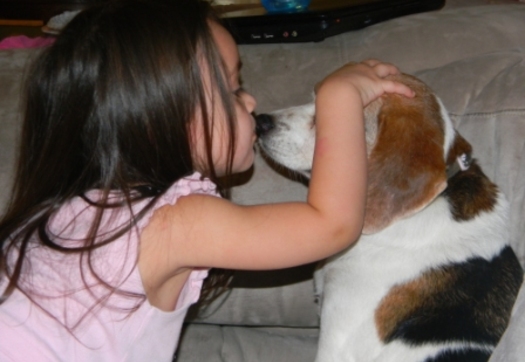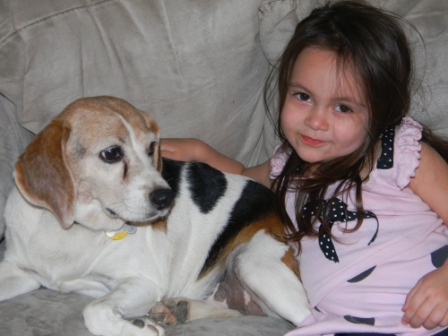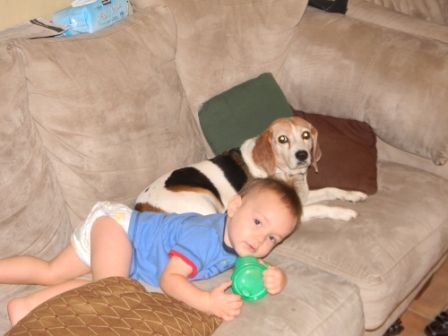Help Us Save Daisy!!!
Fundraising campaign by
Ashley458
-
US$45.00raised of $700.00 goal goal
No more donations are being accepted at this time. Please contact the campaign owner if you would like to discuss further funding opportunities
Campaign Story

- Heartworms are worms that live in the right side of the heart of dogs and cats.
- Heartworms are carried by mosquitos and the mosquitos transfer the baby heartworms from one dog to another dog or cat when it bites them.
- The worms can be 6-18 inches long and resemble a thin spaghetti noodle.
- Many different kinds of heartworm preventative are available. These are a Monthly Topical Liquid on the skin, a Monthly Oral Tablet, and a Six Month Injection.
- Dogs and cats should be on monthly heartworm medicine all of their life starting at about 12 weeks of age.
- We recommend that dogs be started on Ivermectin Heartworm Preventative when they test positive for Heartworms as the Ivermectin will to some degree weaken the existing adult Heartworms.

Treatment Steps
- Your pet is evaluated in a physical exam to assess its body condition in whether it is thin or of normal body weight, it’s general appearance, as well as an auscultation of the heart where we listen to the heart and evaluate it for any abnormalities that may exist due to the heartworms.
- We then run a series of diagnostic tests to evaluate the overall condition of your pet; those test being an internal organ chemistry and electrolyte panel, a complete blood cell count and three x-rays of the heart.
- These tests will give us valuable information as to the overall health of your pet and specifically as to the condition of the heart and some idea of how your pet will do during treatment or if he is even a candidate for treatment.
- After the tests are run, and assuming we proceed with treatment, your pet stays in the hospital for 4-7 days. They are placed on a special low salt- low protein food in order to stabilize the heart and the kidneys. On the second or third day of his hospital stay, one intramuscular injection of heartworm treatment is injected into the lumbar back muscle.
- This one injection of heartworm melarsomine treatment will kill some of the worms in the heart, but not all of them. With some of the worms dying, it reduces the worm burden in the dog and allows the dogs body to become familiar with metabolizing the heartworm treatment medicine. 1-2 days after the injection, the dog can go home. They need to be kept very quiet for the next 14 days as the worms are dying inside of them. They may have free roam in the house, but must be leashed walked when walked outside and he is only outside for a short time.
- The worms will die and break up and get caught in the lungs where the body will clean them up. If any coughing results, you must please notify us right away as this may mean that the pet is having an inflammatory reaction in the lungs. Usually a shot of cortisone & antibiotic will clear this up and sometimes it goes away on its own with the use of Robitussin or Mucinex cough medicine.
- After this one injection to kill the adult worms we will run a kidney test, give your dog a bath & flea dip, and your pet will go home the following day.
- Your pet will return one month later and receive an additional two heartworm injections one day apart and these two injections in most all cases kill all of the adult heartworms in the heart. Your pet will stay in the hospital for three to five days, and when they return home he must again have restricted activity for 14 days, them being kept inside the house and leash walked outside only for the bathroom. If any coughing results you can use the Robitussin or Mucinex or call us if need be.
- Your pet will return one month later after this treatment for a 2-3 day treatment to kill the baby heartworms circulating in the blood and this is referred to as Heartworm Treatment Part 2.
Heartworm Treatment for Baby Heartworms &
Follow up Testing–Part II

- Your dog’s adult heartworms should now be all killed with the completion of Heartworm Treatment Part 1
- Heartworm Treatment Part 2 will now kill the baby heartworms called Microfilaria, which live and circulate in the bloodstream. This is what the mosquito transmits from one dog to another and in the new dog the baby larvae heartworm will develop into adult Heartworms in the heart
- Your pet will stay in the hospital for 2 or 3 days and receive two oral doses of Ivermectin one day apart to kill the Microfilaria. Your pet will also receive an antihistamine injection to negate any type of allergic reaction.
- If your dog is a Collie, Sheltie, Border Collie, or any type of Collie or Sheltie mix then they cannot have Ivermectin medicine as a fatal reaction could result. Your pet will receive Interceptor medication to kill the baby Heartworm Microfilaria.
- A final Idexx Heartworm Test will be run to verify the status of your pets heartworm treatment. Occasionally a pet may still test positive for Heartworms. In which case, we may administer one more Melarsomine injection to kill any remaining adult worms, or we may wait three months and then test. If positive at that time, we recommend at least 1-2 more injections to kill the adult worms.
- In any event, we will start or continue with our monthly heartworm preventative for the rest of your pets life.
Organizer
- Ashley458
- San Antonio , US
No updates for this campaign just yet
Donors & Comments
- Guest
- Posted On Aug 31, 2012
Hugs to Daisy!! : )







Hugs to Daisy!! : )